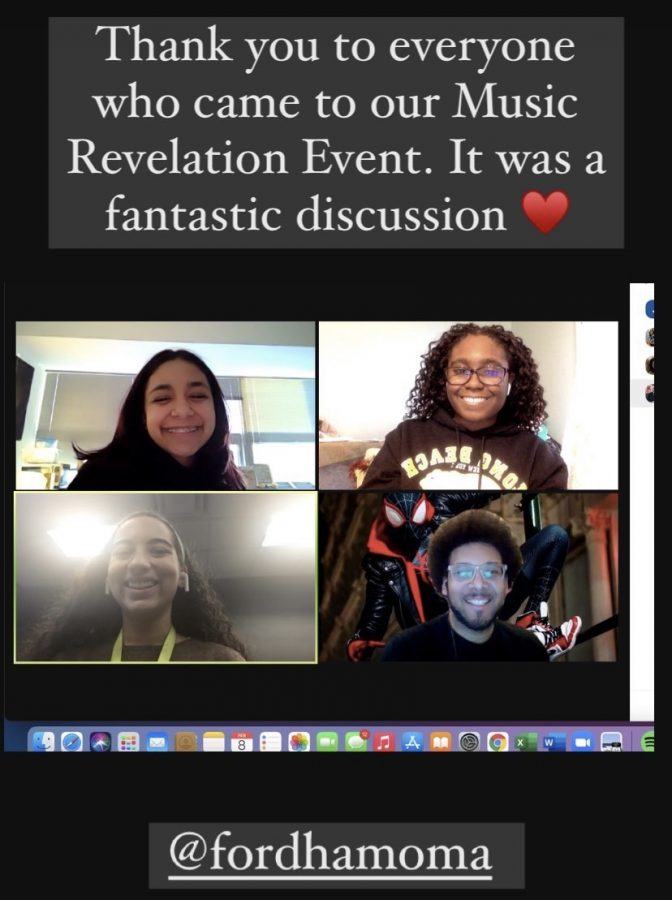OMA Hosts Events to Celebrate Black History Month
Every February, communities across the United States honor Black History Month. The Office of Multicultural Affairs (OMA) at Fordham University has planned a wide variety of programs and events to celebrate the rich heritage of Black Americans and encourage Fordham students to learn more about Black culture.
Black History Month, also called African American History Month, was first officially recognized by the United States in 1976 under President Gerald Ford, according to the Library of Congress. However, the Black community had celebrated the holiday long before that. Historian Carter G. Woodson and his organization, the Association for the Study of Negro Life and History (ASNLH) first founded “Negro History Week” in 1925. The holiday quickly became popular in the Black community and eventually evolved into the month-long celebration of Black culture and heritage that we know today.
Lilibeth Ramos Flores, a graduate intern at OMA, said that while the university honors Black History Month every year, she and the students on OMA’s Black History Month committee recognized the importance of honoring Black culture after the mass protests last summer for the Black Lives Matter movement. “Even if this year we don’t see the kind of protests we saw in 2020, that doesn’t matter because it will always be important,” said Flores.
OMA organizes several student committees each year to help plan and implement programs celebrating different holidays and cultural groups, according to Flores. These include (but are not limited to) Black History Month, Women’s History Month, Asian American and Pacific Islander Heritage Month and LGBTQ History Month. Each committee is headed by two student cultural programming coordinators, one from each Fordham campus. These coordinators often collaborate with cultural clubs on campus like ASILI and the Asian Cultural Exchange to plan events, said Flores.
The committee for Black History Month has announced a broad range of programming for Fordham students to celebrate the Black community and learn more about its history. Flores said the programming is a mix of in-person, hybrid and fully virtual events in order to cater to students who are remote this semester.
On Monday, the committee hosted a discussion over Zoom “on the importance of music in our lives and the significance of Black music in the entertainment world,” according to its Instagram page, @blackhistoryatfordham. Students who attended were able to talk about the Black artists who have impacted their lives and share their favorite music. Student committee members also organized a virtual trivia night last week focused on Black culture and history. Winners received a gift card to a Black-owned business.
The Black History Month committee plans to host a book club on Feb. 17 and a paint day on Feb. 19. Flores said they also plan to host a virtual panel on hair care and appreciation this month as well. The committee will continue to announce programming on its Instagram page throughout the month.
Flores said that the committee for Black History Month tried to create programming that was not only fun but genuinely educational. “We have a lot of things that I hope will encapsulate Black History as a whole,” Flores said. “I think cultural programming is really important, but I also think we sometimes get lost in the glamour and sparkle and shine of music and dance and food. I feel that oftentimes the history and learning and intentional lessons are left out of programming.” She also said that OMA tries to highlight as many intersectional identities as possible with its programming to make sure everyone in the Fordham community feels uplifted and appreciated.
Above all, Flores said she feels strongly that Fordham students should seek out opportunities to expand their worldviews and learn about other cultures. “It’s important for you as a person to get to know other people without tokenizing them and without burdening them,” she said. “Black History Month isn’t just for Black people. It’s for everyone. It’s for everyone to learn.”

Abbey Delk is a junior from Wheeling, West Virginia, double majoring in English and journalism and minoring in film & television. Her career at the...







































































































































































































